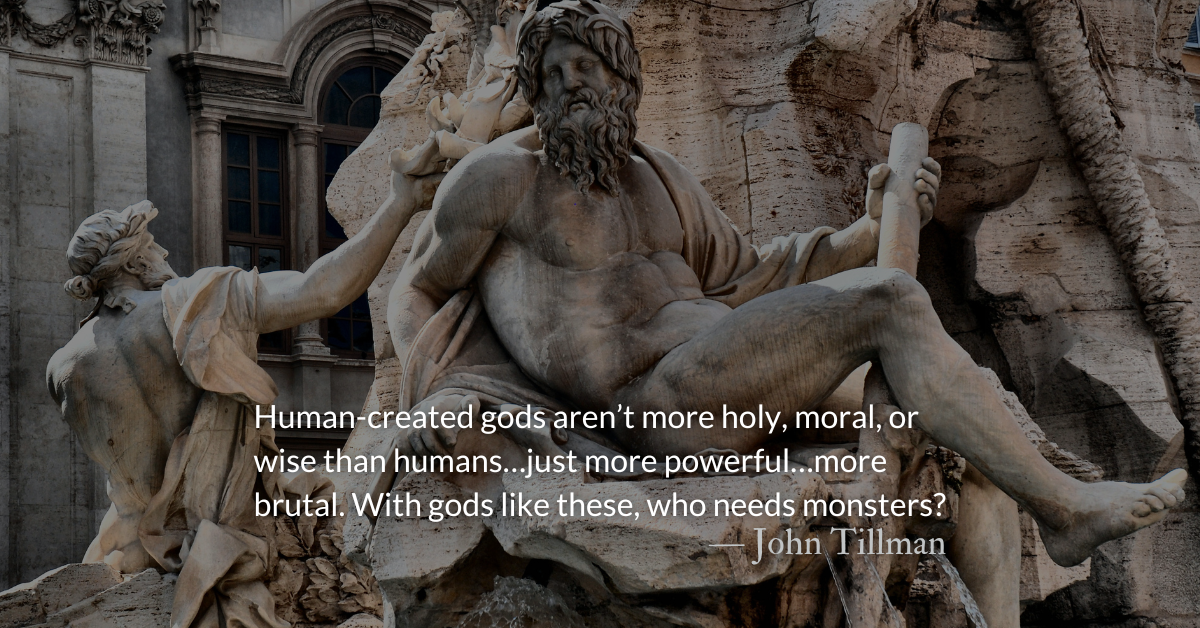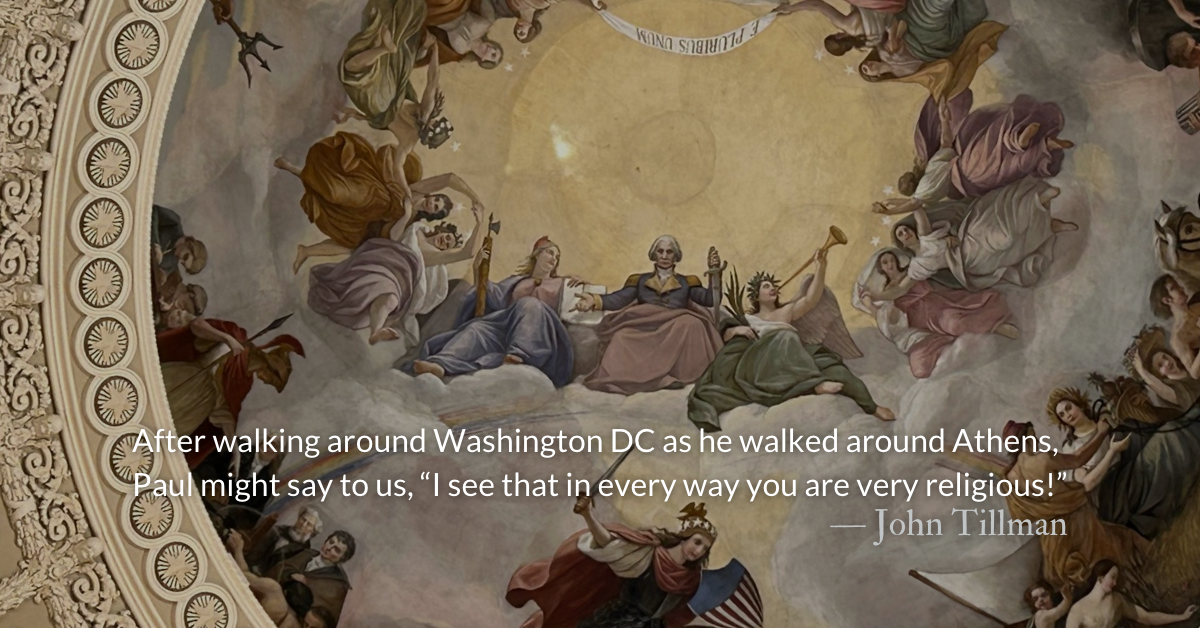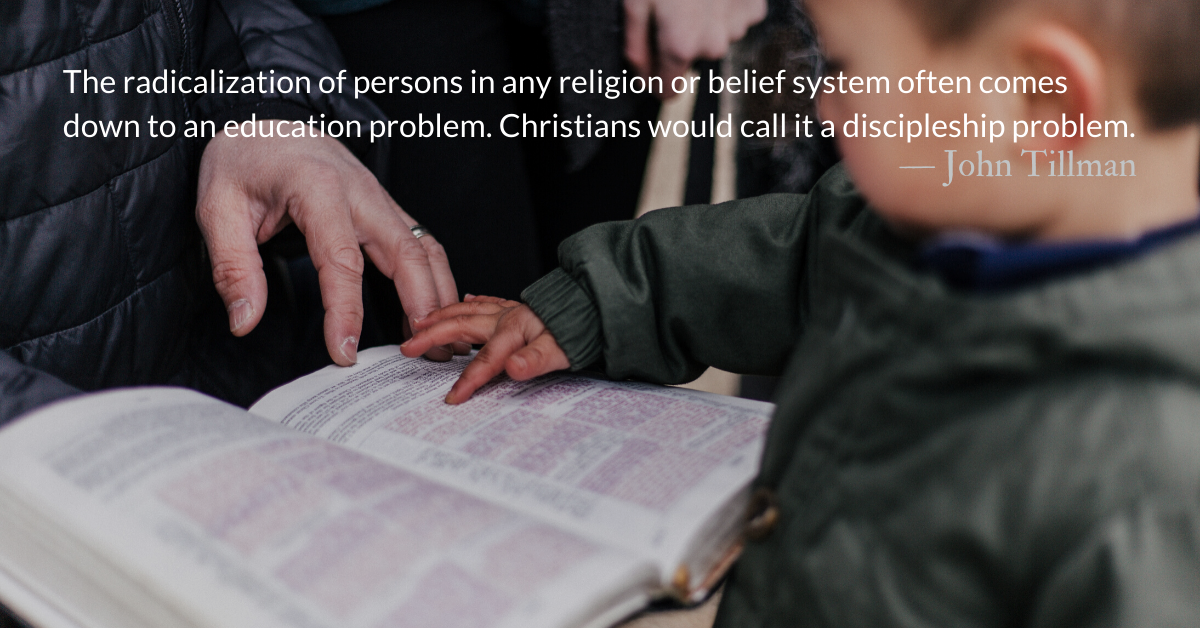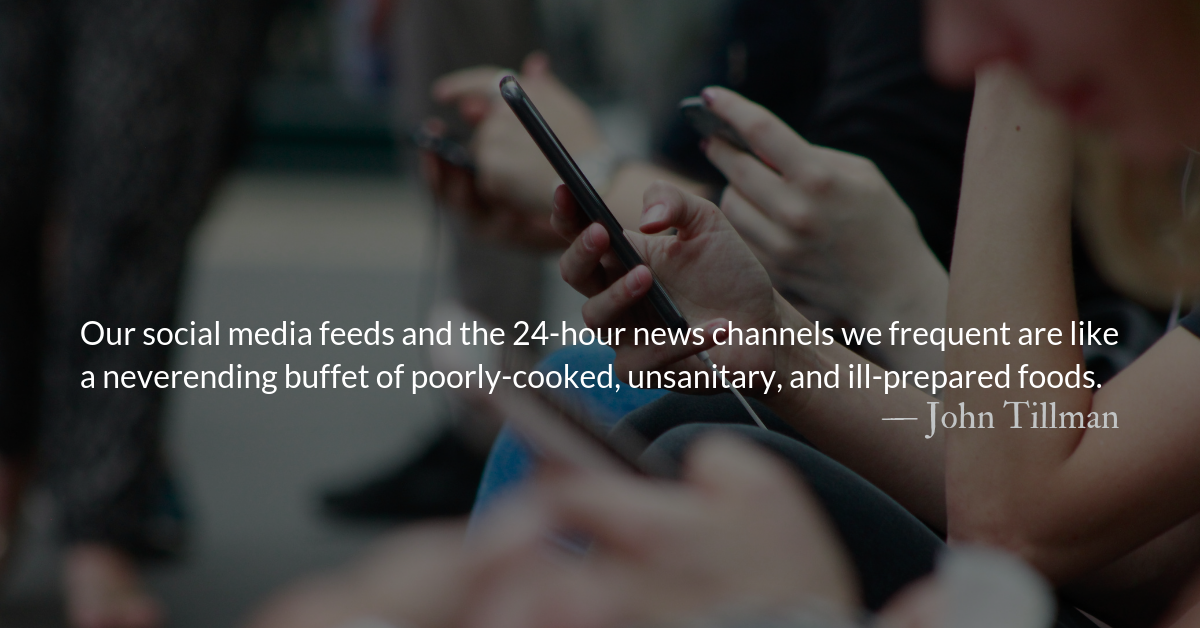Scripture Focus: Acts 14.11-17
11 When the crowd saw what Paul had done, they shouted in the Lycaonian language, “The gods have come down to us in human form!” 12 Barnabas they called Zeus, and Paul they called Hermes because he was the chief speaker. 13 The priest of Zeus, whose temple was just outside the city, brought bulls and wreaths to the city gates because he and the crowd wanted to offer sacrifices to them. 14 But when the apostles Barnabas and Paul heard of this, they tore their clothes and rushed out into the crowd, shouting: 15 “Friends, why are you doing this? We too are only human, like you. We are bringing you good news, telling you to turn from these worthless things to the living God, who made the heavens and the earth and the sea and everything in them. 16 In the past, he let all nations go their own way. 17 Yet he has not left himself without testimony: He has shown kindness by giving you rain from heaven and crops in their seasons; he provides you with plenty of food and fills your hearts with joy.”
Reflection: Gods in Our Image
By John Tillman
When people say that humans create gods in our own image, I agree with them.
Human-created gods are easy to spot. They are like humans we know. There are strongman gods like Zeus, trickster gods like Hermes, and a host of other “types.” They mostly look like, think like, and act like us. They aren’t more holy, moral, or wise than humans. They are just more powerful. And with flaws and weaknesses like ours, they are more brutal. One slight brings destruction and curses. One slip-up brings unrelenting pain and suffering.
In Lystra, Paul and Barnabus are mistaken for Zeus and Hermes. Commentor, Conrad Gempf mentions a possible motivation for the crowd’s reaction. According to legend, a nearby town had failed to welcome Zeus and Hermes when they visited. Angered by this, the gods destroyed the offenders. With this story in the background, the cry, “The gods have come down to us in human form,” (Acts 14.11) seems less like a joyful announcement and more like a fearful warning. With gods like these, who needs monsters?
The best we can hope for from pagan gods is a balance of blessing and suffering—some light in the dark. “Perhaps good will hold evil at bay for a season. Perhaps, if we are vigilant, we can avoid offense or quickly make amends.”
Paul and Barnabus deny that they are gods and announce the true God, who is different than any the people know, yet has cared for them all this time. Jesus is a God-man unlike any in mythology. When sharing the gospel, beware of copying mythological ideas.
Jesus did not pretend to be human. He was. He was not a pseudo-human trickster god, conning the Father into loving humans. God does love humans. We are made in his image, not the other way around. The gospel reveals and resurrects this nature in us.
We need to share the gospel by emphasizing the “otherness” of Jesus. Our God is not like humans or easy to understand. He is merciful and gracious, yet punishes the guilty. Our best sacrifices do not appease. Our greatest arguments cannot overcome his wisdom. His gospel promises something completely different.
Jesus does not “restore balance,” or “hold evil at bay.” He completely destroys evil and, in the end, his light will banish all darkness. He will do this ultimately in the universe, but he will start in our hearts.
Divine Hours Prayer: The Call to Prayer
Sing to the Lord a new song, for he has done marvelous things.
With his right hand and his holy arm has he won for himself the victory. — Psalm 98.1-2
– From The Divine Hours: Prayers for Summertime by Phyllis Tickle.
Today’s Readings
Isaiah 27 (Listen 2:16)
Acts 14 (Listen 3:54)
This Weekend’s Readings
Isaiah 28 (Listen 4:49), Acts 15 (Listen 5:43)
Isaiah 29 (Listen 3:55), Acts 16 (Listen 5:53)
Read more about Praising Christ’s Righteousness
Imagine hanging our hopes on a great leader, only to watch him or her fall…Most of us don’t have to imagine it. It has happened.
Read more about Gods of Ruin and Ridicule
Our greatest temptation today is to worship the false gods of power, wealth, pleasure, and narcissism.











